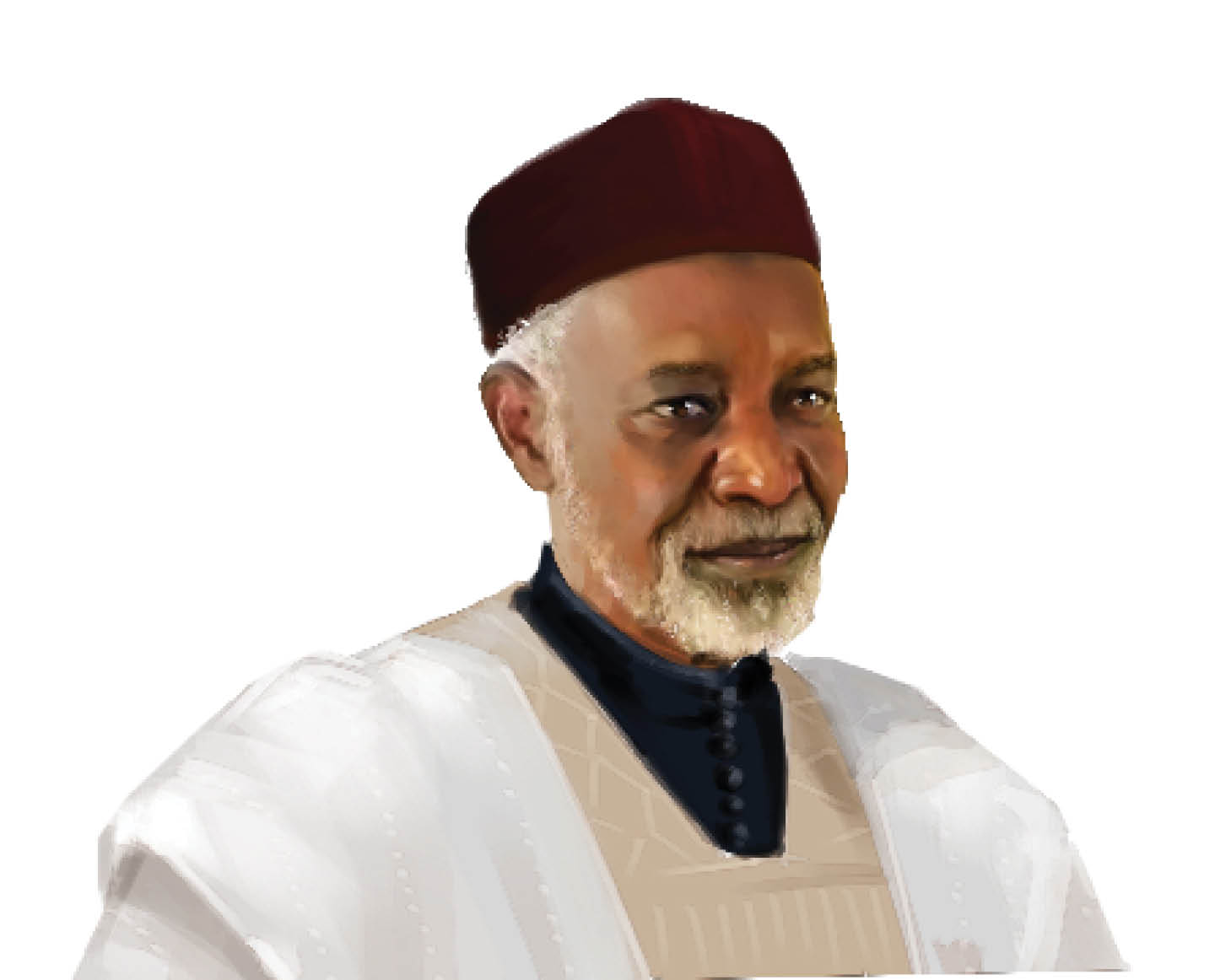Balarabe Musa 1936 -2020
Abdulkadir Balarabe Musa, a prominent second republic politician, died Wednesday, Nov 11, 2020. He was born on August 21, 1936, in the village of Kaya, Kaduna State. Like all students from the north in his days, he went to Middle School, Zaria from 1947 to 1952. He proceeded to the Institute of Administration, Zaria from […]

Late Malam Abdulkadir Balarabe Musa
Abdulkadir Balarabe Musa, a prominent second republic politician, died Wednesday, Nov 11, 2020.
He was born on August 21, 1936, in the village of Kaya, Kaduna State. Like all students from the north in his days, he went to Middle School, Zaria from 1947 to 1952. He proceeded to the Institute of Administration, Zaria from 1952 to 1953. He was a school teacher for five years before Nigeria’s independence. He was at various times in the United Kingdom for further studies. He qualified as a chartered accountant.
Alhaji Balarabe was no stranger to controversy and this manifested early in his career. He was Chief Accountant/Company Secretary of the Broadcasting Corporation of Northern Nigeria (BCNN) at the time veteran broadcaster, Alhaji Abba Zoru, was the Managing Director. When Abba Zoru went on leave, he missed the resumption date by a day. The MD returned to meet a query on his desk from the company secretary. As far as anyone knows it was the first query from a subordinate to his boss anywhere.
When the Kaduna Polo Club invited him to be a member he not only declined but quipped: “I don’t play polo … It is the game of the rich and powerful, of neo-colonialists.”
In political terms Alhaji Balarabe inclined to the left. This led him in 1953 to join Northern Elements Progressives Union (NEPU) founded by Malam Aminu Kano.
In the second republic, he was again with Malam Aminu Kano in the Peoples Redemption Party (PRP). He was elected governor of Kaduna State in 1979 on the platform of the PRP. During that election, Kaduna State voted massively for members of the National Party of Nigeria (NPN), giving them absolute majority in the legislature but elected Alhaji Balarabe, the PRP candidate as governor. This set the stage for epic confrontation. The NPN which was the ruling party at the federal level was also in control of the Kaduna State House of Assembly. The party, therefore, demanded to share in the appointments the governor would make, but Balarabe did not accept. The legislators in turn refused to confirm his key appointments. The government operated to the end without commissioners.
Concerned citizens called for compromise in order for the state to move forward. The SSG, Dr. Bala Usman, said there would never be any compromise. “To compromise is to make compromise a principle,” he argued. Matters came to a head and eventually Balarabe was removed as governor on June 23, 1981. On the day of the impeachment, the NPN was short of one vote because one of their members was in hospital. They ferried him in time to cast that critical vote and he was returned to his hospital bed.
Balarabe launched an ambitious industrial blueprint to transform Kaduna State but it did not outlive his tenure.
Alhaji Balalrabe Musa was consistently vocal, fearless and spoke with passion when reeling out against oppression, injustice and corruption. He shunned all the paraphernalia of office. Even as governor, he lived in his private house, a 3-bedroom apartment. He lived a frugal lifestyle.
Balarabe remained active in politics till the end. He ran for president under PRP in April 2003 elections but lost. He said the electoral system was rigged in favour of money bags. He was critical of President Olusegun Obasanjo’s policies, describing them as “phantom and mirage.” In the 2007 elections, the CNPP which he led backed then General Muhammadu Buhari, arguing that he was a better alternative to Umaru MusaYar’adua, the PDP candidate. But he did not also spare Buhari as president. On August 31, 2018, Balarabe Musa quit active politics and resigned as the chairman of the PRP.
In a tribute, President Muhammadu Buhari described Balarabe as a voice for the voiceless who had remained steadfast in the call for good and inclusive governance, a patriot, a consistent fighter and outspoken voice for the talakawas; a principled political leader who, throughout his life, consistently championed the cause of the masses and stood firm on the side of equity and justice.
May the Almighty have mercy on his soul and admit him to Aljannatul Firdaus.
